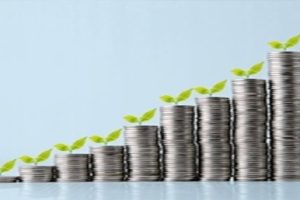BY ABEBE WOLDEGIORGIS
Yesterday, Prime Minister Abiy Ahmed (PhD) attended the eleventh regular meeting of the House of People’s Representatives and provided response to the questions forwarded from the members with regard to the political, economic and social issues.
In his explanation, the premier vastly elaborated about the nation’s economic issues including the inflation and measures have been taken by the incumbent. The World economy As to Abiy, the Ethiopian Economy is intertwined with the world economy and it has been affected both positively and negatively. When adversity comes, the Ethiopian economy will take the impact.
He further said, in the last 100 years, the world economy has come across four challenges or economic crisis. The first one was the great depression which occurred in the United States in 1929 due to over production and lack of sufficient market. Such situation left millions of workers unemployed both in the US and Europe. Some also asserted that the crisis was responsible for the outbreak of the Second World War in 1941.
The second economic crisis occurred in 1987 known as the black Monday crush which happened due to mismanagement. The third one is the dot com crush which happened in 2000 whereas the fourth one is known as the financial crises occurred in 2008. Though the crises occurred in economically advanced countries, the impact affected all countries in the world including Ethiopia. The financial crises hit real estate business and mortgagee banks.
To understand the whole aspect of the problems, assessing the root causes of the challenge is essential. When the macro economy faces default, the asset is devaluated, hyperinflation occurs and income is reduced and the problems will be aggravated.
Currently, the world economy seems ailing and it differed from the crises occurred in 2008. The Information Communication Technology companies lay off more than 100 thousands of workers. Banks particularly in the United States are facing bankruptcy. One renowned US based bank which has branch in the United Kingdom and utilized cutting age technology is forced to sell its asset due to unable to serve customers. Other California based bank also is found itself at the verge of collapse. The Swiss and Dutch banks also faced crises in unprecedented manner.
There are various indicators which show how the world economy is plummeting. In 2021 the world economy grew by 6.1% and it is predicted that this year will grow by three percent. The developed countries economy in 2022 grew by five percent whereas this year, it is predicted the economy to grow only by 1.7%. The European economy by 2022 grew by 3.5% while it is predicted to grow 0.7% this year.
The Ethiopian economy The International Monetary Fund predicted that the Sub Saharan African Countries’ economy will grow by 3.5%, while the Ethiopian economy is predicted to grow by five percent. According to the Prime Minister, his government inherited various problems rolled down from the previous regimes and among others, economic instability, political upheaval, conflict and debt from multilateral financial institutions.
He said that Ethiopia’s foreign debt is raised to 59% of the nation’s Gross Domestic Production. Last year, the government allocated 1.9 billion Dollars for debt service. Even though the nation faced crises such as war and COVID 19 and dwindling foreign currency earning capacity in the last three years, it fulfilled its debt repayment duty with no rescheduling.
The other challenge the nation came across was inflation due to internal and external factors. Due to the outbreak of war between Russia and Ukraine, price hike observed on basic commodities such as edible oil and petroleum that Posed inflation.
The shortage of supply of agricultural products because of hoarding the products by farmers also contributed for the inflation and in this case, the poor suffered more from the brunt of artificial price hike. The absence of sufficient and modern infrastructure such as roads affected the normal supply of food to the market which again aggravate price hike.
In the Ethiopian context, inflation hit more of the poor than the rich and in the last 20 years, the inflation rate has been increasing uninterruptedly. While food demand is growing from time to time due to population growth and the insufficient growth in the side of supply as per the demand resulted in commodity price rising. Therefore, the government has been working vigorously on increasing production and supply to the market as a way out.
After the outbreak of the now ended war in the northern part of Ethiopia, donor countries cut their financial support by accusing Ethiopia as if it was a war monger. The premier further said that the 59% of the Ethiopian Budget is allocated for infrastructure building as a capital budget.
The government also allocates budget to meet food demand of the poor who are unable to obtain food even once a day. In order to tackle consequences of the inflation, sharing dyne with the needy was taken as tool in addition to working against the price hike. On the other hand, to withstand the price hike, the government allocated 50 billion Birr as a subsidy. 133 thousand vehicles were subsidized to overcome the increasing price of petroleum. The government also provided 21 billion Birr to subsidize fertilizer to farmers. As a result, it lost about ten billion Birr by allowing importers to import food and edible oil through Franco Valuta.
On the other hand, some farmers practiced hoarding crops’ products and some individual farmers hoard up to 1000 quintals of wheat at home because of false information fed that if they hoard their products at home, they can sell it in high price later on. This in turn posed shortage of supply in urban markets. However, due to the excessive amount of wheat production through irrigation, stabilizing the market was possible. Nevertheless, he did assert that though the government encourages irrigated wheat farming and subsidizes fertilizer to farmers, the products should be marketed in a fair price.
He also said that currently the nation could harvest one million quintals of wheat through dry season irrigation farm and exports the surplus amount of wheat to the neighboring countries with ensuring domestic supply. In the past, Ethiopia spent large amount of Dollars for the importation of wheat but this year it gave up importation and this can be taken as positive outcome of the nation’s economic performance. Coffee production which is a back bone for the nation’s export earning is increasing and the amount of hard currency obtained from the sector is growing.
As to him, the net tax income of the nation is increasing by 28%. However, as compared to the Gross Domestic Product, the share is very small. The nation collects 376 billion Birr in the form of tax this year. However, the government expenditure is increased by 31%. As the result, it is forced to fill the budget gap through securing loan and grant from foreign sources.
The nation’s export earnings for this year are decreased as compared to the previous year because of the rampant illegal trade on products such as gold, tantalum and chat. For instance, last year’s gold supply to the central bank from Benshangul Gaumuz alone was 20 quintals whereas this year it supplied only three quintals. In spite of all these challenges, the nation’s economy is going on the right track though needs more concerted effort to tackle the challenges that exacerbate the inflation.
THE ETHIOPIAN HERALD WEDNESDAY 29 MARCH 2023




